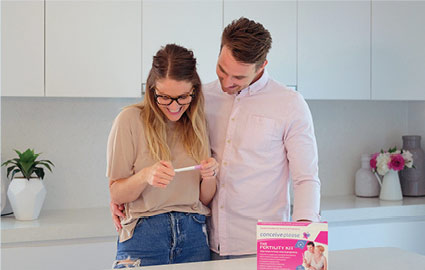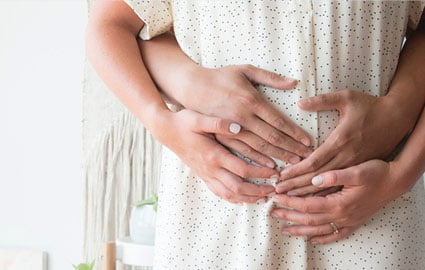Becoming an new expecting mum is an exciting time, with so many new things to experience as your body accommodates baby - and what feels like an overload of new information to learn. Looking after your health is a number-one priority, so we’ve rounded up some key considerations for expectant mums.
Evaluate your alcohol intake and smoking habits
Smoking and alcohol intake throughout pregnancy have been found to put expectant mums and their unborn babies at increased risk of a variety of health problems and complications, including miscarriage, premature labour and potential foetal developmental complications.
Whether you’re pregnant or preparing for pregnancy, avoiding smoking and drinking alcohol is the safest option.
Eat a healthy, balanced diet - and be aware of the foods to avoid during pregnancy
Just as it is important to eat healthily, it is important to be aware of foods to avoid. Expectant mums are not only more prone to nausea, but are also at greater risk of being infected by the bacteria listeria, which, if transmitted to your unborn baby, can lead to significant developmental and birthing complications, and even miscarriage.
In order to minimise nausea, it is advised that an expecting mum avoids spicy or strong-smelling foods, and opt to consume several, smaller meals throughout the day as opposed to fewer, larger ones.
Foods that might carry the infection listeria include:
- raw/uncooked/smoked meat and seafood, or ready-to-eat chilled seafood
- deli meats, cooked cold meat, pate and meat spreads
- ant leftover food (more than 24 hours after cooking)
- soft cheeses (brie, camembert, ricotta, fetta, blue)
- unpasteurised milk, and any soft-serve ice-cream
- raw eggs or foods containing raw or partially cooked eggs
- unwashed raw fruit and vegetables
Take a pregnancy multivitamin
The body changes dramatically from the moment of conception and as such, new expecting mums require extra nutrients such as vitamins C and B, as well as iron and zinc to help ensure a healthy pregnancy journey.
Our conceiveplease™ Pre-Conception and Pregnancy Vitamins are designed to be taken from the time you start trying to conceive. Here are some key reasons why:
- Our vitamins contain 500mcg of folic acid (above the minimum daily requirement of 400mcg). Starting folic acid in the pre-conception period and in the first three months of pregnancy reduces the risk of a neural tube defect such as spina bifida by 70%
- Iron is important to reduce iron deficiency and anaemia, which is common in women of childbearing age. Requirements for iron increase in pregnancy
- The World Health Organisation recommends a daily iodine supplement for expecting mums, as extra iodine is needed during pregnancy to support thyroid function and fetal brain development
Keep up a regular exercise routine
We’re not talking daily bootcamp sessions, but rather gentle strength and cardio exercises to assist with weight control, improved mood and general fitness level throughout pregnancy.
Expectant mums who exercise regularly can also enjoy a lower risk of complications such as pregnancy-induced hypertension and pre-eclampsia (best identified by swollen hands and feet). Of course, before you undertake any form of exercise it is important to consult your doctor first.
Sign up to parenting classes
While it’s likely your doctor will recommend that you attend a birthing class closer to your due date as well as postnatal workshops post-birth, hospitals often offer a whole variety of other classes to get you up to speed on the pregnancy journey. Classes can include general parent education workshops, exercise classes for new expectant mums, and even classes specifically for parents expecting twins. Not only are classes and parenting workshops educational, they’re a great way to connect with other expecting parents.
SOURCES:
- World Health Organisation
- National Health and Medical Research Council Australia
- Better Health Channel (Victoria State Government)
Your pregnancy journey
Preparing for pregnancy
A good preconception plan to educate yourself about your fertility cycle and implementing recommended lifestyle changes optimises your chances of conceiving naturally.
Monitoring ovulation
In order to pinpoint your fertile window, you need to be aware of the length of your menstrual cycle. The average length of menstruation is 28 days.
During pregnancy
The female body will evolve dramatically within this time and there are many nutritional and lifestyle changes that will be necessary to meet the needs of a growing healthy foetus.
Download your FREE e-books for top fertility tips to help you get pregnant





